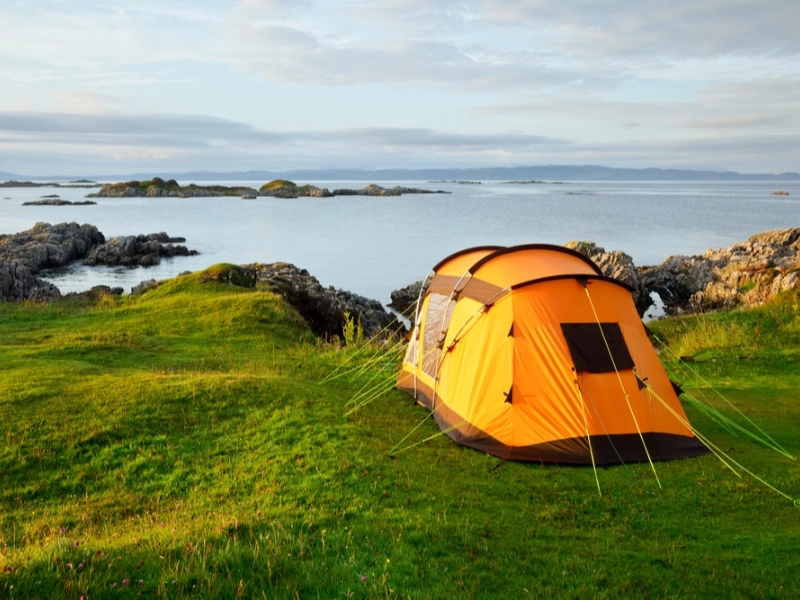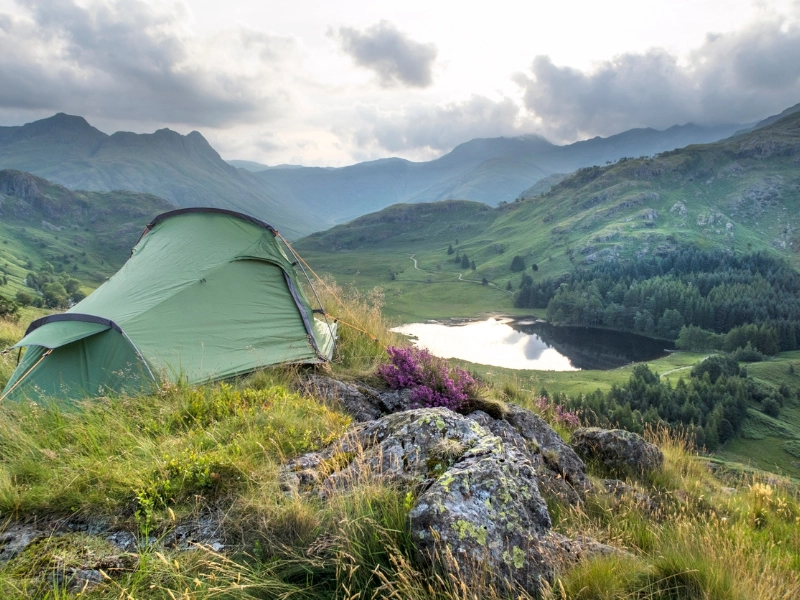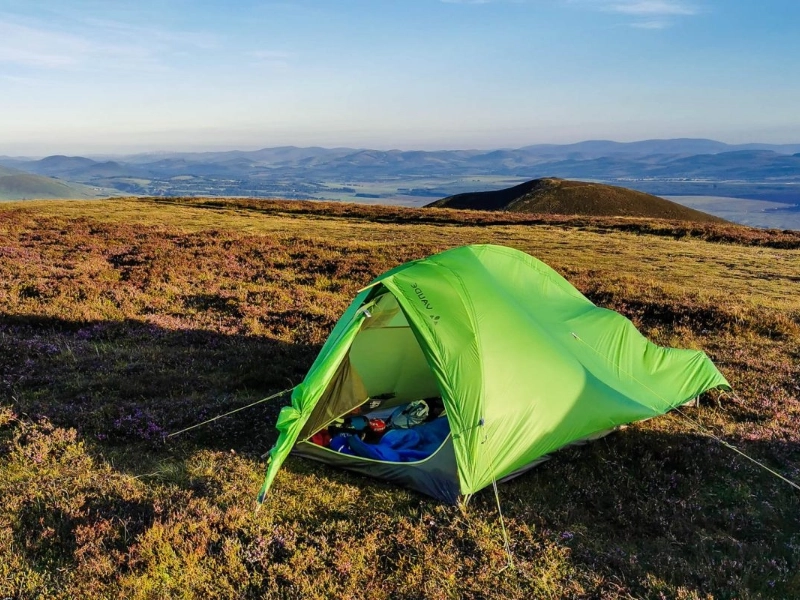A fantastic opportunity to get outside, take in the scenery, and hone your wilderness survival abilities is through wild camping. But it's crucial to comprehend the legal context in which it operates. Unauthorized camping on private land is prohibited in England, Wales, and Northern Ireland. However, if you're discreet and polite, some landlords may overlook it.

 There are several various regulations pertaining to wild camping in different parts of England, Wales, Scotland, and Northern Ireland. But, in general, you won't be breaking the law if you camp in an open, unfenced area. All you have to do is make sure you don't disturb any wildlife, respect the privacy of those who live or work on the land, and leave no trace behind.
Tent camping in the backcountry is the pinnacle of outdoor experiences for a lot many trekkers. Prior to setting up camp, it's crucial to comprehend the legal ramifications. It is important to confirm that camping is permitted, to get permission, and to make sure you leave no trace behind. If not, even the tiniest of infractions, like a patch of temporarily compacted grass or extra tent peg holes, could result in a fine. Following the advise of national parks like the Brecon Beacons National Park Authority, which suggests obtaining landowner permission before setting up a tent, is the best way to avoid this.
There are several various regulations pertaining to wild camping in different parts of England, Wales, Scotland, and Northern Ireland. But, in general, you won't be breaking the law if you camp in an open, unfenced area. All you have to do is make sure you don't disturb any wildlife, respect the privacy of those who live or work on the land, and leave no trace behind.
Tent camping in the backcountry is the pinnacle of outdoor experiences for a lot many trekkers. Prior to setting up camp, it's crucial to comprehend the legal ramifications. It is important to confirm that camping is permitted, to get permission, and to make sure you leave no trace behind. If not, even the tiniest of infractions, like a patch of temporarily compacted grass or extra tent peg holes, could result in a fine. Following the advise of national parks like the Brecon Beacons National Park Authority, which suggests obtaining landowner permission before setting up a tent, is the best way to avoid this.
 It's against the law to set up a tent, tarp, or hammock without the landowner's express consent in England, Wales, and Northern Ireland. It is considered trespassing, and even though it is merely a civil offense (not punishable by arrest), if you are caught, the police may ask you to leave. Additionally, it is forbidden to start a fire on private property without the owner's consent.
Many places, including Scotland and Dartmoor, permit wild camping as long as you abide by a code of conduct that forbids starting fires in the absence of precipitation, leaves no trace, and shows consideration for the surrounding ecosystem. It is advisable to conduct thorough research prior to camping in uncharted region. There can be other guidelines and limitations in place, such group sizes, and you risk paying a fine or possibly getting kicked out if you're found in violation. Asking permission from the landowner and staying for no longer than two nights is the recommended course of action.
It's against the law to set up a tent, tarp, or hammock without the landowner's express consent in England, Wales, and Northern Ireland. It is considered trespassing, and even though it is merely a civil offense (not punishable by arrest), if you are caught, the police may ask you to leave. Additionally, it is forbidden to start a fire on private property without the owner's consent.
Many places, including Scotland and Dartmoor, permit wild camping as long as you abide by a code of conduct that forbids starting fires in the absence of precipitation, leaves no trace, and shows consideration for the surrounding ecosystem. It is advisable to conduct thorough research prior to camping in uncharted region. There can be other guidelines and limitations in place, such group sizes, and you risk paying a fine or possibly getting kicked out if you're found in violation. Asking permission from the landowner and staying for no longer than two nights is the recommended course of action.
 If you're thinking about going wild for your next excursion, make sure to learn about any local laws that may apply and look for remote areas that aren't close to busy trails or campsites. This will make it more likely that your journey will have a little effect and disperse equally across the area.
Fortunately, most landowners will be delighted to let you camp if you do discover the ideal location. It's crucial to respect their property and leave no evidence, though. This entails disposing of any trash you produce, protecting wildlife, and not interfering with the environment in any manner.
Due to unwritten agreements, wild camping is often permitted throughout the UK, however it's advisable to confirm with the landowner or refer to a map before pitching your tent. If not, you can be breaching the law and endangering your security. The regulations governing the countryside in the UK might be difficult, so before you set up camp, make sure you understand everything.
If you're thinking about going wild for your next excursion, make sure to learn about any local laws that may apply and look for remote areas that aren't close to busy trails or campsites. This will make it more likely that your journey will have a little effect and disperse equally across the area.
Fortunately, most landowners will be delighted to let you camp if you do discover the ideal location. It's crucial to respect their property and leave no evidence, though. This entails disposing of any trash you produce, protecting wildlife, and not interfering with the environment in any manner.
Due to unwritten agreements, wild camping is often permitted throughout the UK, however it's advisable to confirm with the landowner or refer to a map before pitching your tent. If not, you can be breaching the law and endangering your security. The regulations governing the countryside in the UK might be difficult, so before you set up camp, make sure you understand everything.